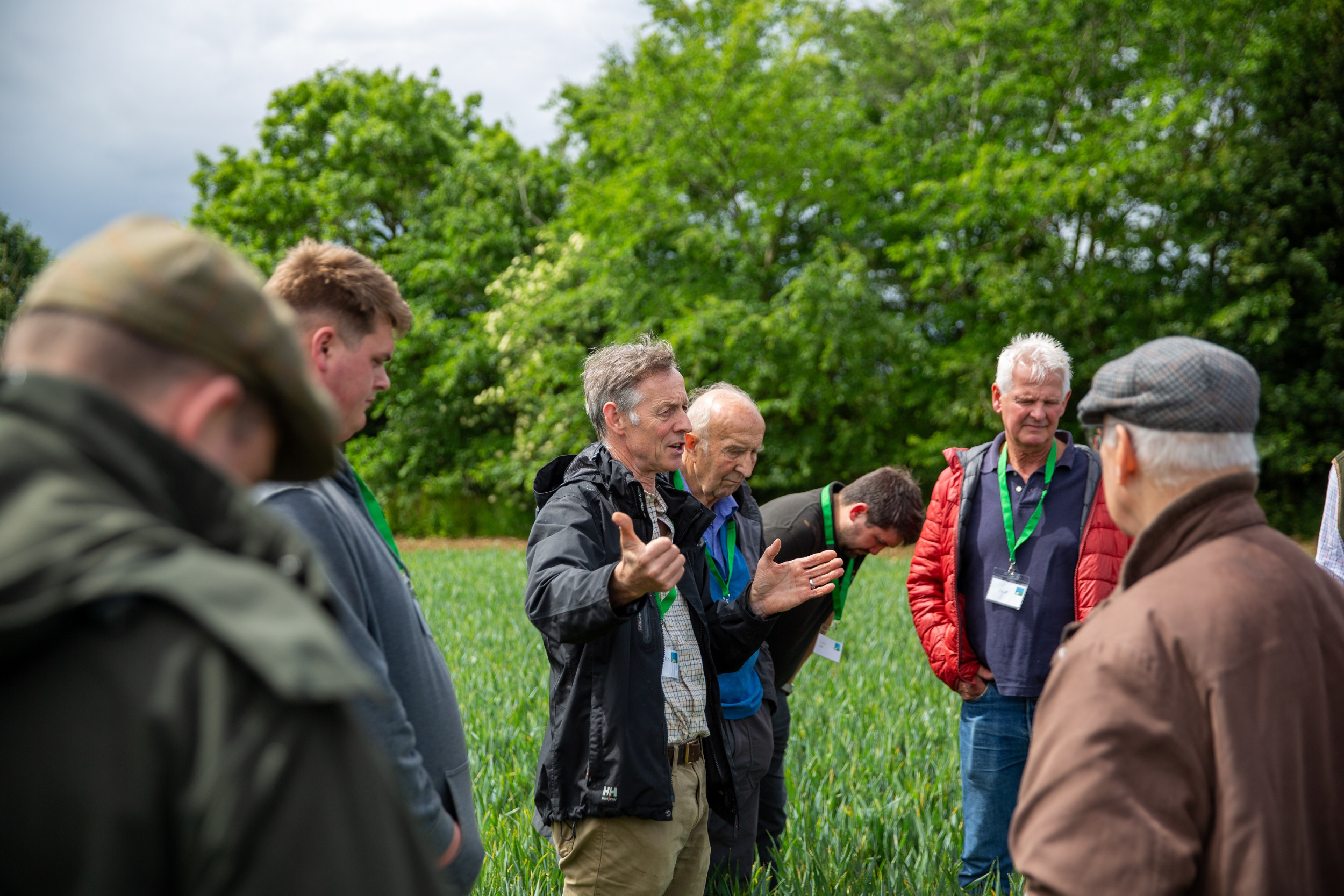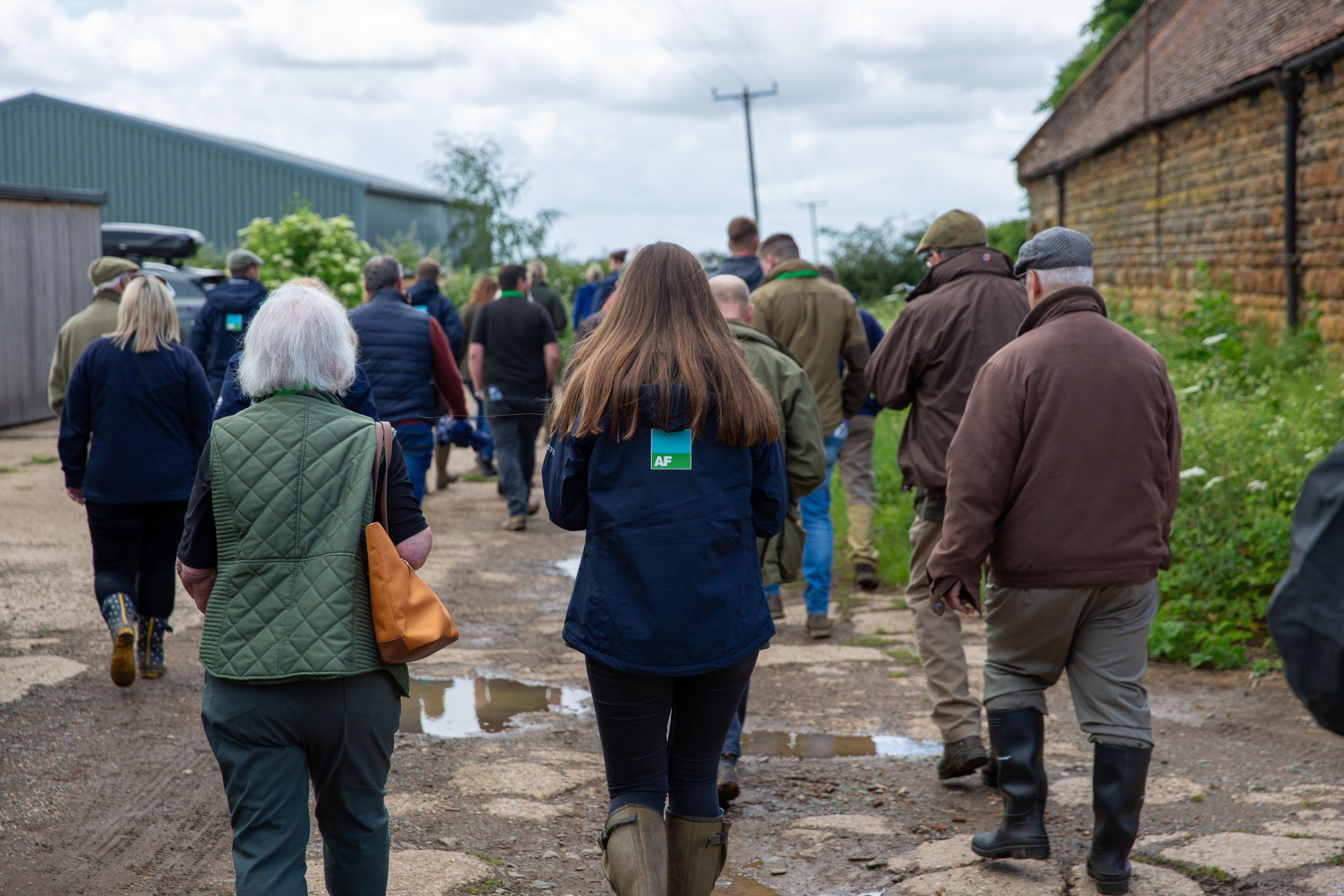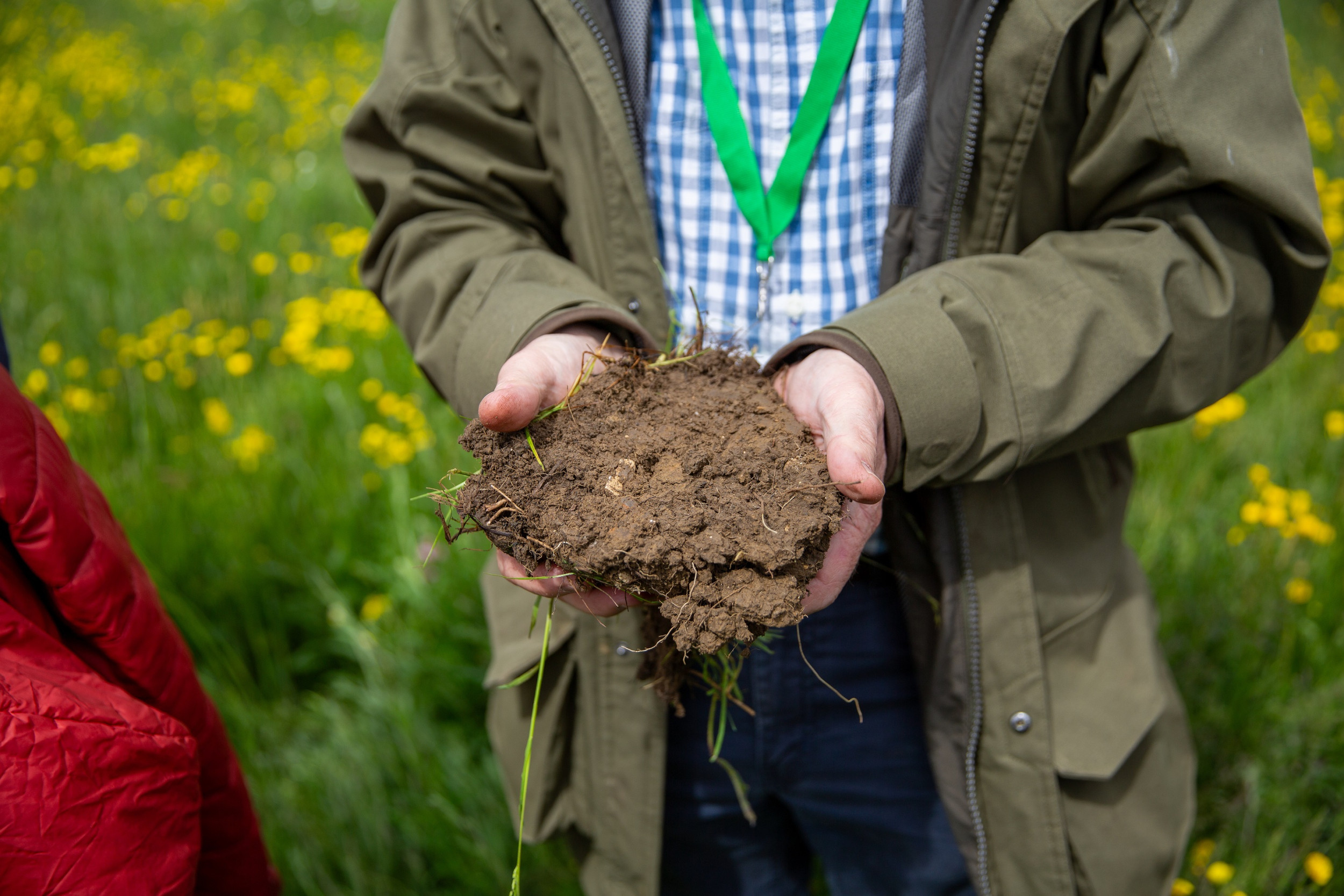Insight
A walk on the wild side at The Grange
03 June 2025
To help our Members make decisions about what and how they farm, for yield and biodiversity, we welcomed them to see first-hand how experiments succeed and fail, and where policymakers can see practical application of new initiatives.
AF Members and other farmers from six counties, colleagues from our Crop Inputs and Member Services teams and representatives from AF supplier BASF all met on AF Member & Director Andrew Pitts’ farm ‘The Grange’.
Seeing the farming reality
Wellies & waterproofs were donned for a two-hour tour of several different ‘experiments’ and 'look-see' trials Andrew and BASF have been running at The Grange.
 Heading out to the trial fields
Heading out to the trial fields
Andrew gave a frank and honest appraisal of what has (and hasn’t) worked for him. For example, how he’s had to interplant a vetch crop with wheat to try and get it to lift up so it's combinable. When asked whether this would work, Andrew answered “I’ve no idea how this is going to turn out, so come back in 6 months!”.
“The farm walk was incredibly informative, changing some mindsets, but also collaborative, with some guests questioning different farming techniques. Andrew was open and honest as well open to suggestions. The Grange is a great display of how we can overcome challenges we face, from climate to policies.”
Top discussion topics
The wildflower meadow sparked a lot of discussion, including how it could potentially be fed to livestock so you’re not only growing an SFI crop, but also a useful one.
Lots of practical questions were asked. From direct drilling practicalities and what happens after harvest to crop rotations. They were open-minded, practical questions that Andrew answered candidly, even down to running through the machinery he uses, to really help other farmers back home.
Andrew even asked fellow Members whether they are direct drilling and if so, if they’d seen any changes in yield. Nobody had seen a decline since direct drilling. Most yields were stable which is positive. Soil health is being improved and yields not suffering, not to mention other benefits such as reduced fuel consumption.
 Getting our hands dirty checking out soil health
Getting our hands dirty checking out soil health
Not surprisingly, there was a lot of talk around blackgrass control this year, and the difference seen when not ploughing and using later drilled crops. Even companion cropping, covering the ground, was noted as an effective way to reduce blackgrass growth.
There were good conversations about nitrogen use efficiency and how that’s changed through adopting different farming practices. At The Grange, nitrogen use efficiency has lifted from 55-60% to 75-80%, with 30% added from companion crops as well. And there were some challenging questions about carbon credits, especially around how selling them actually works in practice.
“I'm really proud to be part of the AF team facilitating some inspirational, collaborative problem-solving of real-world farming problems.”
See you next time?
Farm walks like this are a fantastic opportunity to solve practical farming problems with advice and experience from fellow Members. And discover how AF can help your business save both money and time.
Want to join next time?
Visit https://af.farm/events to find out where we're out and about.